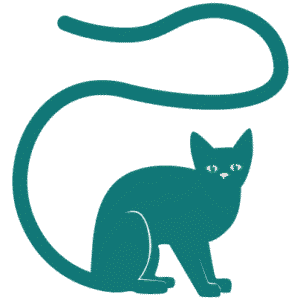Welcome to The London Cat Clinic, where we specialise in feline medicine and are dedicated to delivering exceptional care tailored to your cat’s needs. Our team of cat-loving professionals ensures a serene, dog-free environment, designed for your feline friend’s comfort and tranquillity.
Alongside important routine care, such as our Feline Health Care Plan, we provide a comprehensive range of specialty services within our state-of-the-art clinic, including Advanced Dentistry, Ophthalmology and Internal Medicine.
Recognised as a Gold Standard Cat-Friendly Clinic by The International Society of Feline Medicine, and proud winners of the 2017 National Veterinary Practice Design Awards, we are committed to providing top-quality care and utilise state-of-the-art equipment to ensure the well-being of our patients.

“The London Cat Clinic is simply fantastic – from the reception staff to every single vet, nurse and care assistant. The service they provide is unparalleled and they really care about our cats. I wouldn’t go anywhere else.”
Andrew E.

At The London Cat Clinic, we believe cats deserve veterinary care that’s as unique and exceptional as they are. Founded with a vision to create a feline-only practice where cats feel safe, understood, and expertly cared for, we’ve built a clinic tailored to their specific needs — and to the needs of the people who love them.
From our Gold Standard cat-friendly facilities to our hand-picked team of feline-focused vets and nurses, everything we do is centred on providing the highest quality care in a calm, respectful environment.
Whether your cat needs a routine check-up, advanced diagnostics, or specialised treatment, you can trust us to deliver thoughtful, personalised care with clinical excellence and compassion at its heart.

Dr Jeremy Campbell, Founder
BVSc MANZCVS (Medicine of Cats) MRCVS
The London Cat Clinic is a state-of-the-art veterinary facility designed exclusively for the comfort and care of cats. Located in Bermondsey, it offers a calm, feline-friendly environment free from the stress and noise of traditional mixed-animal practices. The clinic is purpose-built with spacious, quiet consultation rooms, dedicated feline-only hospital wards, and advanced diagnostic equipment tailored specifically to feline medicine. Every detail, from the layout to the low-stress handling protocols, has been developed to put cats at ease and support their well-being.
Among the clinic’s key features are a digital radiography suite, an in-house laboratory for rapid test results, and a surgical theatre equipped for both routine procedures and complex operations. The London Cat Clinic also includes a dental suite with specialised feline dental tools, as well as a dedicated recovery area where cats can rest in comfort post-treatment. The team of experienced veterinary professionals, all passionate about feline health, work together to deliver exceptional, cat-centric care at every stage of a patient’s visit.
At The London Cat Clinic, we’re devoted exclusively to feline health. Our team of highly qualified specialists offers cutting-edge diagnostics, advanced treatments, and compassionate care—all in a calm, cat-friendly environment. From routine check-ups to complex medical cases, we tailor every service to meet the unique needs of your cat, ensuring they receive the highest standard of veterinary care in London.


We’re proud to have earned the trust of so many cat owners across London. Here’s what some of our clients have to say about their experience with our dedicated team and feline-focused care.